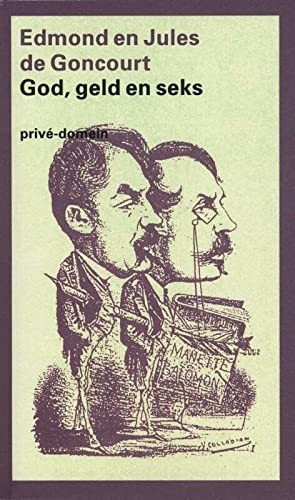Marleen Stikker (1962) is een Nederlandse internetpionier en één van de oprichters van Waag, een stichting die zich onder andere richt op de maatschappelijke aspecten van technologie. In Het internet is stuk (2019) pleit ze voor aandacht voor publieke waarden bij technologische innovatie, beter onderwijs, het gebruik van open source en beperkingen aan de macht die bedrijven ontlenen aan het verzamelen van data. Ik las haar pleidooi met plezier en interesse, al was een redactieslag op zijn plaats geweest.
Digitale soevereiniteit
Hoewel de discussie over technologie zich sindsdien rap heeft voortgezet, is het betoog van Stikker onverminderd actueel. In de inleiding schetst ze een beeld van internetgerelateerde technologie die is geïnfiltreerd door techbedrijven en veiligheidsdiensten die toegang hebben tot soft- én hardware. Digitale soevereiniteit is een kernbegrip: het recht om online, binnen de grenzen van de wet, te kunnen handelen zonder verantwoording af te leggen. Daartoe zijn het beheren van de eigen data en het beschermen van privacy cruciaal. Stikker maakt duidelijk dat technologie niet neutraal is en de culturele en politieke waarden van de maker en gebruiker weerspiegelt.
Rol van de markt
Vervolgens beschrijft ze de interessante geschiedenis van het internet in Nederland en Europa, van de opkomst van de doe-het-zelfcultuur in Amsterdam en de vrijheid van De Digitale Stad tot de opkomst van het TCP/IP-protocol en het (teleurstellende) World Wide Web. Het deed me denken aan de cowboywereld die Edward Snowden schetst in zijn autobiografie [b:Permanent Record|46223297|Permanent Record|Edward Snowden|https://i.gr-assets.com/images/S/compressed.photo.goodreads.com/books/1564666396l/46223297.SY75.jpg|71198843]. Stikker eindigt haar geschiedenis met de sombere conclusie dat de politiek de markt vrij spel heeft gegeven, waarna ze uiteenzet waarom het internet volgens haar kapot is. Daarbij kijkt ze mede met een economische bril naar de (vermeende) waarde van data en verschijnselen als surveillance capitalism en social cooling. Hoe groot de rol van de markt is, blijkt bijvoorbeeld uit de totstandkoming van de Payment Service Directive 2 die bedrijven een groot voordeel verschaft bij het verkrijgen van bankgegevens, ten koste van de digitale soevereiniteit van burgers. De huidige journalistiek is ondertussen nauwelijks in staat om de financiële stromen en politieke machtsstructuren achter het internet in kaart te brengen.
De jonge mannen met hoody’s zijn zelf de nieuwe Goliaths geworden, hun macht een veelvoud van die van de oude bazen. Ze hebben die macht geconsolideerd door hun platforms compleet te centraliseren en alle data en algoritmen te privatiseren. Daarbij hebben ze de energie van de nieuwe Davidjes subliem weten te absorberen, simpelweg door ze te financieren. […] Ze hebben de perfecte list gevonden om het gevaar af te wenden dat ze buitenspel worden gezet door gretige jonge honden: die worden zo snel mogelijk ingelijfd en afhankelijk gemaakt van de geldkraan. Niet voor niets verrijzen er in alle grote steden gigantische start-upspeeltuinen waar jonge entrepreneurs met drones mogen spelen, elkaar met retro arcadespellen kunnen bevechten, en barista’s klavertjes in hun cappuccinoschuim tekenen – dat alles met het idee dat ze dit doen voor de planeet, voor goed onderwijs, […] De wereld van het kapitaal heeft zich het sociaal-maatschappelijk idioom toegeëigend.
Artificiële intelligentieStikker besteedt veel aandacht aan artificiële intelligent en benadrukt opnieuw dat mensen ai niet ‘ontdekken’, maar ontwerpen. De toepassing van algoritmen en data is evenmin neutraal en gevoelig voor bijvoorbeeld vooringenomenheid, zoals Cathy O’Neil (
[b:Weapons of Math Destruction|28186015|Weapons of Math Destruction How Big Data Increases Inequality and Threatens Democracy|Cathy O'Neil|https://i.gr-assets.com/images/S/compressed.photo.goodreads.com/books/1456091964l/28186015.SX50.jpg|48207762]) laat zien. Of ai ook daadwerkelijk ‘intelligent’ is, is maar de vraag. Onder verwijzing naar Meredith Broussard (
[b:Artificial Unintelligence|36722634|Artificial Unintelligence How Computers Misunderstand the World|Meredith Broussard|https://i.gr-assets.com/images/S/compressed.photo.goodreads.com/books/1525627646l/36722634.SX50.jpg|58519283]) schrijft Stikker dat generieke ai alleen in films bestaat, maar nauwe ai te zien is als ‘
statistics on steroid’.
OplossingenTen slotte waagt Stikker zich aan oplossingen om gemaakte fouten te herstellen. Daaronder valt een aantal concrete juridische of technologische toepassingen, van Creative Commons en opensourcesoftware tot het gebruik van privacy-vriendelijkere applicaties als Nextcloud of Tutanota. Belangrijker is haar beroep op het belang van lokale gemeenschappen (
commons), publieke voorzieningen en zeggenschap voor burgers. Collectiviteit, persoonlijke relaties en solidariteit zouden een belangrijke rol moeten hebben in de discussie over digitale innovatie. Ik was blij de naam van Mariana Mazzucato (
[b:Mission Economy|55742686|Mission Economy A Moonshot Guide to Changing Capitalism|Mariana Mazzucato|https://i.gr-assets.com/images/S/compressed.photo.goodreads.com/books/1603166951l/55742686.SY75.jpg|73121548]) voorbij te zien komen, een econome wiens ideeën over publiek-private samenwerking ik bewonder. Daarmee lijkt Stikker ook enigszins tegemoet te komen aan de kritiek dat veel burgerlijke initiatieven weliswaar sympathiek, maar op grote schaal verwaarloosbaar zijn.
GoodreadsNa het lezen van
Het internet is stuk is het me duidelijk dat Stikker een stem is om naar te luisteren. Om deze complexe materie vanuit meerdere disciplines goed te kunnen uitleggen, zijn kennis en begrip nodig. En passant geeft de auteur bovendien een interessante leeslijst mee, al had ik een deel daarvan al klaar liggen. Helaas zijn sommige stukken te langdradig en schiet Stikker soms teveel kanten uit. In versoberde vorm was dit betoog waarschijnlijk scherper geweest.
Tijdens het lezen was ik me pijnlijk bewust van mijn voornemen om ook deze leeservaring te verwerken in een recensie op Goodreads (lees: Amazon). De meeste gebruikers zullen zich bewustzijn van het verdienmodel van de techgigant, maar net als ik de geneugten verkiezen boven de risico’s. Stikker legt haar vinger op de zere plek.















